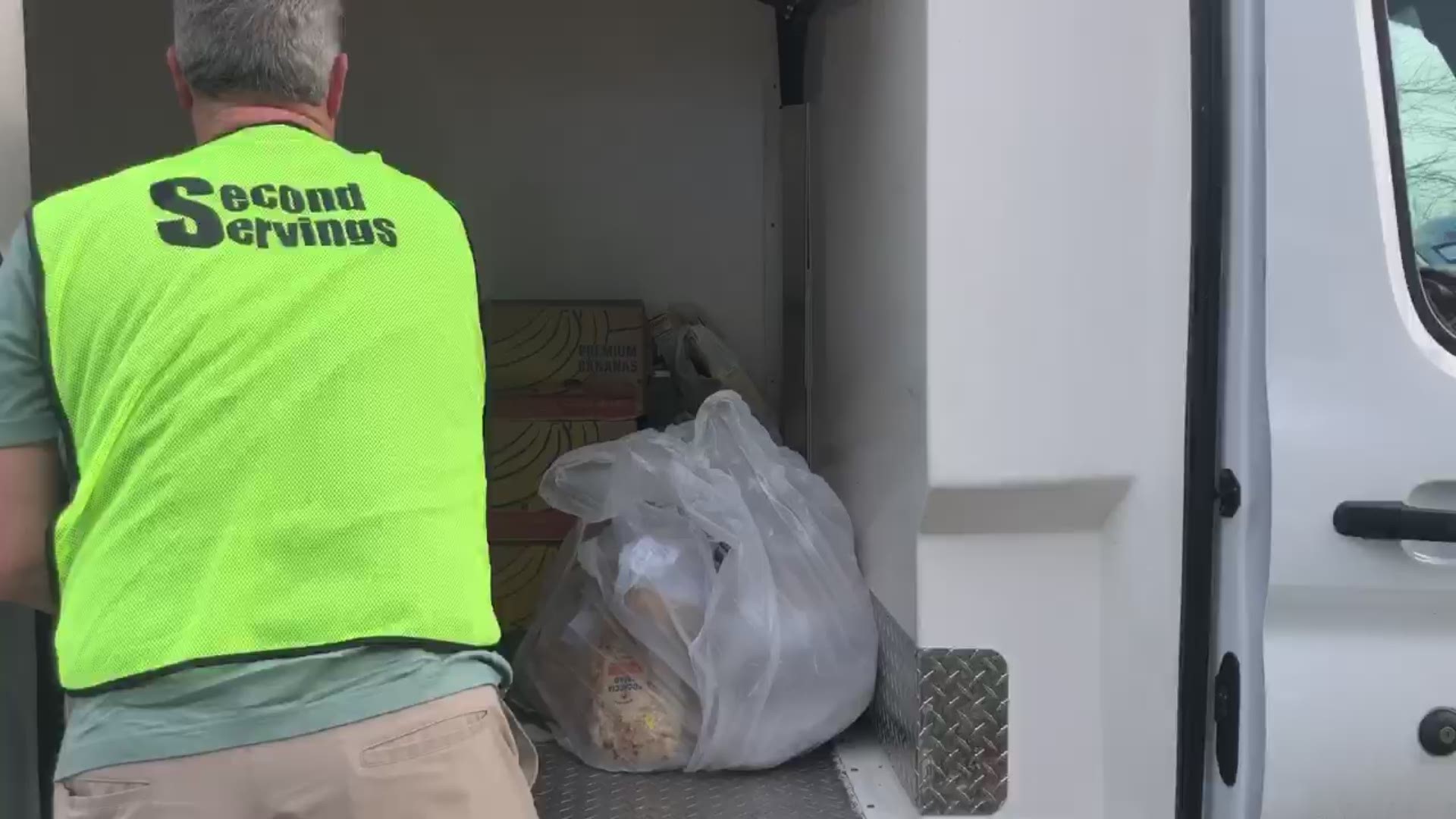HOUSTON — A nonprofit organization called Second Servings is working overtime as the greater Houston area navigates through the COVID-19 pandemic.
Second Servings picks up unserved and unsold food from distributors, convention centers, sports venues, retailers and hotels and delivers the food to more than 90 local shelters, soup kitchens, low-income housing and many other charities.
Volunteers had a record-breaking day Monday as they rescued more than 13,000 pounds of fresh food that filled six delivery vans.
"We’re taking food that was going to get thrown away," said Second Servings Houston delivery driver John Thornton. "Saving it from the landfill and then taking it to all these charity sites all over Houston that will use the food."
He's been driving for the organization for the last two years.
"There’s nothing we have picked up that I would not eat myself," he said.
The organization pays drivers so deliveries can be reliable, but volunteers are needed to help pickup and drop off the food at more than 90 shelters across Houston.
"It’s very inspiring to do this," said Thornton. "You feel like you’ve been productive with your day and your time to help people out."
"It allows you to focus on something other than your own circumstances," said volunteer Sabrina Engel. She keeps her distance, wears gloves and washes her hands between stops. "Because the need is still here. No matter what happens, the need is still here."
How You Can Help Second Servings:
- Stay well! Note the differences between COVID-19 symptoms and other illnesses.
- Share the word that Second Servings can pick up surplus food, as events continue to get cancelled, and schools and universities start working remotely
- Donate to help us continue to feed people in need during this unprecedented time
Coronavirus symptoms
The symptoms of coronavirus can be similar to the flu or a bad cold. Symptoms include a fever, cough and shortness of breath, according to the Centers for Disease Control.
Most healthy people will have mild symptoms. A study of more than 72,000 patients by the Centers for Disease Control in China showed 80 percent of the cases there were mild.
But infections can cause pneumonia, severe acute respiratory syndrome, kidney failure and even death, according to the World Health Organization. Older people with underlying health conditions are most at risk.
The CDC believes symptoms may appear anywhere from two to 14 days after being exposed.
Human coronaviruses are usually spread through...
- The air by coughing or sneezing
- Close personal contact, such as touching or shaking hands
- Touching an object or surface with the virus on it, then touching your mouth, nose or eyes before washing your hands.
Help stop the spread of coronavirus
- Stay home when you are sick.
- Eat and sleep separately from your family members
- Use different utensils and dishes
- Cover your cough or sneeze with your arm, not your hand.
- If you use a tissue, throw it in the trash.
Lower your risk
- Wash your hands often with soap and water for at least 20 seconds. If soap and water are not available, use an alcohol-based hand sanitizer.
- Avoid touching your eyes, nose, and mouth with unwashed hands.
- Avoid close contact with people who are sick.
- Clean and disinfect frequently touched objects and surfaces.
- If you are 60 or over and have an underlying health condition such as cardiovascular disease, diabetes or respiratory illnesses like asthma or COPD, the World Health Organization advises you to try to avoid crowds or places where you might interact with people who are sick.
Get complete coverage of the coronavirus by texting 'FACTS' to 713-526-1111.
Continued coverage on KHOU.com

